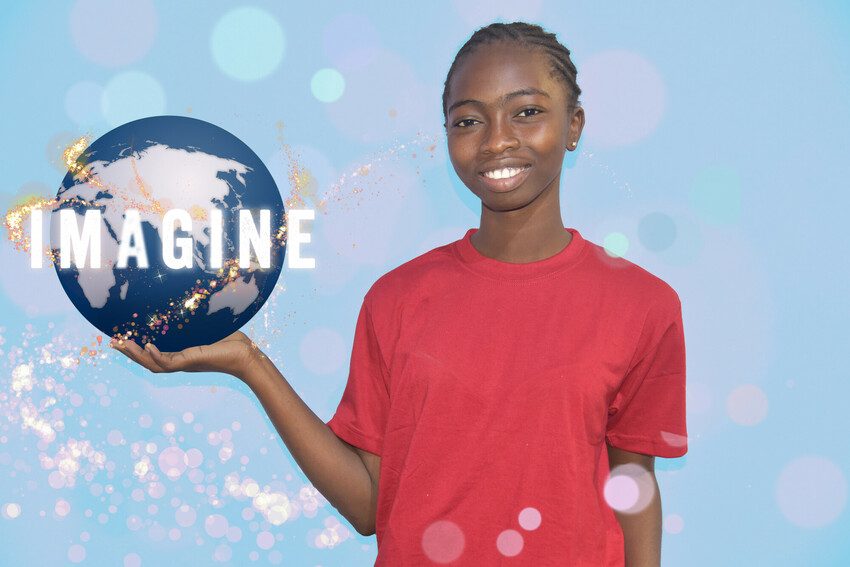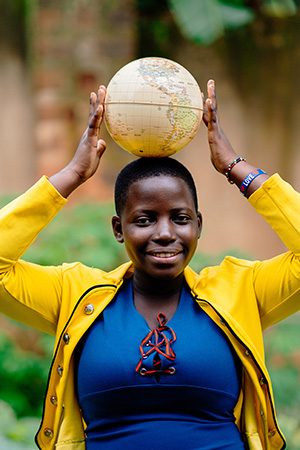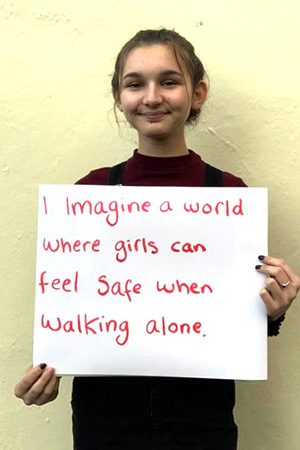In a world ravaged by the COVID-19 pandemic, where turmoil and human suffering has never seemed so ever present or so awful, imagining a better world seems more relevant and necessary than ever.
The world pre-COVID-19 was deeply unequal, and this pandemic has exposed, deepened and created significant cracks in our systems, institutions and leadership. For millions of people, this pandemic and its consequences – social distancing, lockdowns, the closing of schools – has made existing problems worse.
Girls have been forced out of education
In March 2020, at the first peak of the pandemic, 743 million girls were out of school due to closures, including 111 million in the world’s least developed countries. In many places, schools remain closed. According to estimates, at least one third of the world’s school children cannot access remote learning.
It is estimated that some 13 million more girls may experience child, early and forced marriage as a consequence of the pandemic by 2030, while 20 million may not return to school. Adolescent pregnancy is also likely to increase.
Moreover, the mental health impacts of COVID-19 are immense and ongoing. For millions of young people everywhere, the challenges of today’s world are multiple and frightening.
A better normal, post-covid-19 pandemic
As the world responds to this unprecedented crisis, none of us want to simply return to ‘normal’. A better world must take into account the voices, experiences and opinions of girls and young women – in all their diversities.
So, Plan International asked teenage girls around the world – from Nepal to Cameroon, and many countries in-between, to take a globe, and imagine. Imagine a new world, post-COVID-19, a better world and a better normal.
Here’s what they said:

“A world where everyone takes responsibility for the impact of their actions.”
In Togo, Mariella, 15, found she was able to adapt to lockdowns and home schooling, and sees COVID-19 as an opportunity.
“It’s true that the pandemic has given us the chance to redesign reality a little,” she says.
“Everyone can change the world, one way or the other. Firstly, be strong and valiant! Changing the world means making it better. It’s allowing everyone to achieve their rights.
“I imagine a society where we are not judged, a society where every individual has the right to be themselves without being afraid of what people say, and without fear of being insulted. I dream of a world where everyone takes responsibility for the impact of their actions, on children, on girls and on humanity in general, and respecting each other.”
“A world where children’s rights are respected.”

“A world where all children can access quality education.”
Stecia, 16, from Uganda, says she has felt “bad, anxious, and like I was failing academically”.
“If I could change the world after COVID-19,” she says, “I imagine a world where all children can access quality education, a world where girls can be free online, a world where women and girls’ rights can be protected and not violated.
“If this world could become real, this is a world where women could feel free, a world of peace, a world of harmony. A world where girls could wake up and walk on the streets feeling safe because she knows she is in a safe world.”
“A world without disease or conflict.”

“A world where equality between men and women is not a dream but a reality.”
In the UK, Phoebe, 15, missed her friends, and found online schooling draining.
“Repeating the same day over and over again, stuck at a desk staring at a laptop hour after hour, without being able to talk or see my friends,” she explains. “It was very solitary and lonely. I’m used to seeing them every day, and hadn’t realised how much even our small conversations meant to me.”
“I imagine a world where equality between men and women is not a dream but a reality, and I dream of a world where every single person receives basic human needs, such a water, food, warmth, and much more.
Phoebe adds: “I imagine a world where girls don’t feel as though they have to meet societal standards on the internet, where a women is respected in a position of power, and where girls feel safe when walking alone.”
Categories: Emergencies





